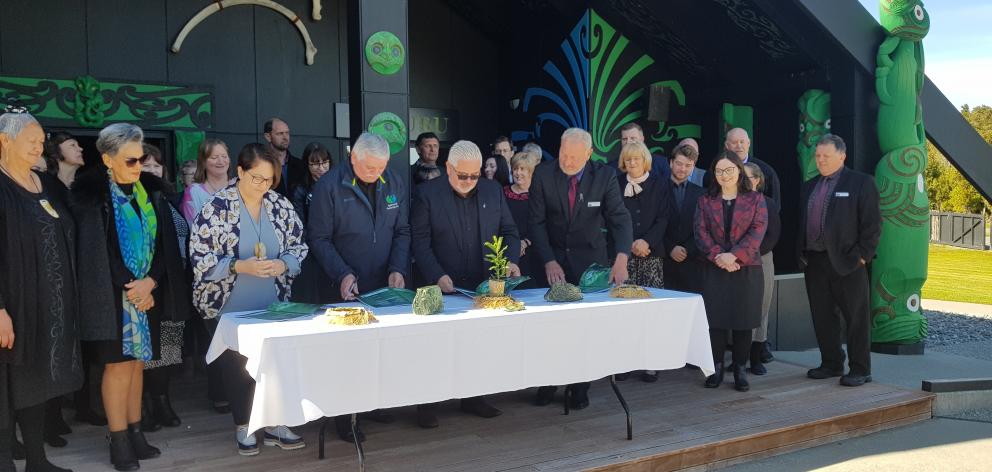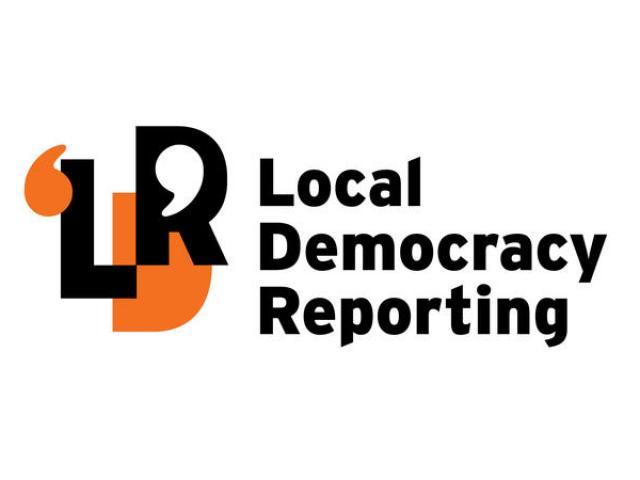
The council, Ngati Waewae, Ngati Mahaki (Makaawhio) and Ngai Tahu runanga signed off on documents at Arahura Marae yesterday that will shape the way local government and Maori work together on the West Coast for years to come.
The Mana Whakahono a Rohe agreement sets out how the parties will deal with Resource Management matters. The accompanying partnership protocol has a wider scope, capturing the intent of the council and iwi to progress their relationship in accordance with the Treaty of Waitangi.
Te Runanga o Ngai Tahu kaiwhakahaere Lisa Tumahai said the agreement was the logical next step in a developing relationship.
"When we think about our history as two iwi it has been quite a journey to get to a position of working with the council in the true sense of partnership.

"The work we have all done in the past five years, having been on council, we have made big steps forward from the past, and it reflects our growing maturity as iwi post-settlement."
The Mana Whakahono agreement was the first to be signed in New Zealand, and showed the West Coast Regional Council was progressive, despite the criticism its chairman sometimes received for his views on climate change and other matters, Mrs Tumahai said.
The good relationship between the council and manawhenua had its roots in the early history of the region, she said.
"Relationships are forged not by organisations but by the people within them. And on the Coast we have more in common than not. Where there are differences we can work them through in an amicable fashion."
Maori and Pakeha on the West Coast shared a long history and a common approach to problem solving.
"We have lived in isolation for centuries... with the tough climate and those big mountain ranges down the middle.
"The early Pakeha settlers also had to be resilient and typically we all just get on with it and get things done."
The agreements showed what could be done when the government acted in accordance with the Ngai Tahu Settlement Act, and co-operated with the iwi, Mrs Tumahai said.
"If we had a document like this with DOC (Department of Conservation) we would not now be having the difficulties we are having with the West Coast Conservation Board."
The new chief executive of the regional council, Vin Smith, said the signing of the agreements capped off a busy first week in the job.
"It's been a fantastic week and this has truly been the highlight.
"The work council and Poutini Ngai Tahi have done is extraordinary and we should all be very proud of what's been accomplished and signed off today."
The agreements opened the way for manawhenua to play a bigger role in resource management on the Coast, Mr Smith said.
"There is every opportunity under the RMA to transfer some functions to the runanga, and develop new arrangements - and think all of those have to be on table moving forward because manawhenua have a huge role in how we should be delivering sustainable management for the West Coast."
By Lois Williams
Local democracy reporter












